Ebikes
Are E-Bikes Greener Than Buses? UK Study Says 1.2T CO2 Saved Yearly (60 Trees)
As someone who’s tried to swap small daily habits for a greener lifestyle, I’ve often found myself torn between “eco-friendly” options—especially when it comes to transport. Buses have long been hailed as a sustainable alternative to cars, but lately, I’ve noticed more and more people zipping around on e-bikes, their wheels humming quietly as they bypass traffic jams. The question niggling at me: Which is truly better for the planet? A recent UK study claiming that switching to an e-bike could save 1.2 tons of CO₂ yearly (the equivalent of 60 trees absorbing carbon!) piqued my curiosity. Let’s dive into the numbers, the trade-offs, and how this choice fits into real, messy, everyday life.
Why the “e-bike vs. bus” question matters for my carbon footprint
Let’s start with the basics: my morning commute. I live in a mid-sized UK city—2.5 miles from work, past a busy high street and a couple of hills. If I drive, that’s about 150g of CO₂ per mile (yikes). Taking the bus? It’s better, but buses still emit around 80g of CO₂ per passenger mile (and that drops only if the bus is full—how often does that happen at 7 a.m.?). Now, an e-bike? Powered by my home electricity (which, thanks to a local solar co-op, is 30% renewable), it clocks in at just 5g of CO₂ per mile. Over a year of five-day commutes, that’s 1.2 tons saved with an e-bike—enough to make my personal impact feel tangible.
But it’s not just about my commute. Air quality in UK cities is still a crisis, with transport responsible for 27% of emissions. Every e-bike that replaces a car or even a bus ride chips away at that number. Plus, there’s the “fun factor”—I’m more likely to stick with a habit that feels easy and enjoyable, and let’s be real: zooming along a cycle lane beats squeezing onto a crowded bus any day.
The hidden environmental costs (and wins!) of buses vs. e-bikes

Here’s what the study didn’t shout from the rooftops: the true “greenness” of any vehicle starts long before it hits the road. Let’s break it down like I’m chatting with a friend over coffee (in a reusable cup, of course):
Production: The “birthprint” matters
Buses are giants—both in size and environmental impact. Manufacturing a single diesel bus emits around 20 tons of CO₂, while even a high-end e-bike clocks in at just 150kg (that’s 133x less!). Electric buses are better, but their batteries alone add thousands of kilos to their carbon footprint. E-bikes, on the other hand, have simple frames, smaller motors, and batteries that—while not perfect—are far less resource-intensive to produce.
Daily use: Efficiency vs. convenience
A bus might carry 50 people, but if it’s only half full (common on off-peak routes), its “emissions per passenger” skyrocket. E-bikes, meanwhile, are hyper-efficient: even a budget model like the DYU C6 (which I’ve seen riders use for grocery runs and school drop-offs) gets 60km per charge—more than enough for most daily trips—and costs just 20p to recharge. Compare that to a bus ticket (£4.50 for a day pass in my city), and the savings—both financial and environmental—add up fast.
End-of-life: What happens when they’re done?
Buses end up in scrapyards, their steel and engines recycled but their electronics and seats often landfilled. E-bikes, however, have removable batteries that can be recycled through schemes like the UK Battery Partnership, and frames that can be repurposed or melted down. Bonus: many e-bike companies offer trade-in programs, extending their lifespan even longer.
How to choose an e-bike that’s actually “green” for your life

Okay, so e-bikes are greener than buses in many cases—but only if you pick one that fits your life. I’ve seen too many well-meaning folks buy a flashy e-bike that’s wrong for their needs, then abandon it. Here’s how to avoid that:
Start with your “why”
- Commuter? Prioritize range (15–30 miles daily is typical) and comfort (suspension for potholed roads, like the DYU C6’s front fork suspension).
- Errand-runner? Look for storage (built-in racks or baskets, like the DYU C6’s front basket that fits a week’s groceries) and load capacity (120kg is standard for most models).
- Weekend adventurer? Opt for fatter tires (for light off-roading) and a removable battery (so you can charge it indoors, no matter where you live).
Battery basics (no tech jargon, I promise!)
Most e-bikes use lithium-ion batteries, which are lightweight but need careful handling. Look for:
- Certifications: UK-approved safety standards (like CE marking) to ensure they won’t overheat.
- Warranty: At least 2 years for the battery (it’s the most expensive part to replace).
- Recycling plans: Brands like VoltBike offer free battery recycling, which makes my eco-heart happy.
Price vs. lifespan: A long-term view
A cheap e-bike (£400–£600) might seem tempting, but flimsy brakes or a short-lived battery could mean replacing it in 2–3 years. A mid-range model (£600–£1,500), like the DYU C6 (£649 on sale!), often has better components that last 5+ years. Use this table to compare key features:
| Feature | Budget E-Bike (£400–£600) | Mid-Range E-Bike (£600–£1,500) | High-End E-Bike (£1,500+) |
|---|---|---|---|
| Range | 30–40km | 50–80km | 80–150km |
| Brakes | Rim brakes (less reliable in rain) | Disc brakes (all-weather stopping) | Hydraulic disc brakes (ultra-responsive) |
| Battery Life | 2–3 years | 5+ years (with proper care) | 7+ years |
| Weight | 28–32kg (heavy to lift) | 22–27kg (manageable for most) | 18–22kg (feels like a regular bike) |
| Ideal For | Short trips (under 10km) | Daily commutes + errands | Long rides + heavy loads |
Bonus: Test ride tips!
- Bring a backpack (to test storage space).
- Ride over cobblestones (to feel the suspension).
- Ask the seller about local repair options—even the greenest e-bike is useless if you can’t fix it.
My real-world experiment: Bus week vs. e-bike week
To see how this plays out IRL, I spent one week relying on buses and the next on a borrowed e-bike. Here’s what happened:
Bus Week
- The good: No need to worry about weather (I just hid under my umbrella at the stop).
- The bad: Waiting 15 minutes for a bus that arrived packed, then having to carry my groceries home because there was no space for bags.
- The numbers: £27 spent on tickets, 12 hours lost to waiting and detours, and a sore shoulder from lugging shopping.
E-Bike Week
- The good: Left whenever I wanted, stopped for coffee on the way, and the front basket held my laptop and groceries.
- The bad: Got caught in a sudden rainstorm (pro tip: always keep a waterproof jacket in the basket!).
- The numbers: £1.20 spent on electricity, 4 hours saved, and a surprising boost in energy—turns out, the gentle exercise of pedaling (yes, even with assist!) wakes you up better than bus engine noise.
Which did I prefer? The e-bike won for convenience and joy, but I’ll still take the bus on days when the wind is howling or I’m feeling lazy. The key? Flexibility—no need to pick one forever.
So, is one definitely greener? The answer might surprise (and empower) you

The truth? It’s not a binary choice. Buses are brilliant for long journeys, rural areas with few cycle lanes, or when you want to sit back and read a book. E-bikes shine for short trips (under 15 miles), urban commutes, and anyone who wants to turn “chores” into “adventures.” What matters most is replacing car trips—both buses and e-bikes are miles better than driving alone.
But if you’re ready to dip a toe into e-bike life, here’s what I’d say: start small. Think about your most frequent trips (school runs? Grocery runs? ) and imagine how an e-bike could make them easier and greener. Check out local bike shops (they’ll know the best models for your area), ask friends for recommendations, and remember: every mile you pedal (or let the motor assist!) is a mile that doesn’t add to traffic jams or pollution.
Ready to take the next step? Grab a cup of tea, browse this guide to UK e-bike grants (many cities offer discounts!), and maybe even book a test ride this weekend. Your carbon footprint (and your smile) will thank you.
P.S. Still unsure? Leave a comment below—I’d love to help you brainstorm what works for your life. Let’s make sustainable transport feel doable, one pedal stroke at a time.
FAQ
Are e-bikes definitely greener than buses?
Not always—but often! For short urban trips (under 15 miles), e-bikes typically emit 90% less CO₂ per mile than buses (especially when buses are half-empty). Buses win for long, shared rural routes, but e-bikes shine for quick, solo journeys. The UK study found switching saves 1.2 tons of CO₂ yearly—like planting 60 trees!
How do I pick an e-bike that’s “green” for my needs?
Focus on:
- Range: Match your daily miles (e.g., 50–80km for commutes).
- Battery: Choose removable, certified lithium-ion batteries (check for recycling plans).
- Practicality: Prioritize storage (racks/baskets) or lightweight frames if you’ll carry it often.
Are e-bikes cheaper than buses long-term?
Absolutely! A mid-range e-bike costs ~£100/year to charge, while a daily bus pass can hit £1,600 annually. Plus, e-bikes last 5+ years with proper care—way longer than cheap, flimsy models that end up in landfills faster.
What if it rains or I live in a hilly area?
No problem! Most e-bikes have disc brakes (great in rain) and gears to handle hills. Just keep a waterproof jacket handy, and look for models with front suspension (like the DYU C6) for smoother rides on rough roads.
I’m new to e-bikes—where do I start?
- Test ride: Try different models to feel comfort and handling.
- Check grants: Many UK cities offer e-bike discounts.
- Start small: Replace one car trip a day with an e-bike—even short rides add up for the planet (and your wallet!).

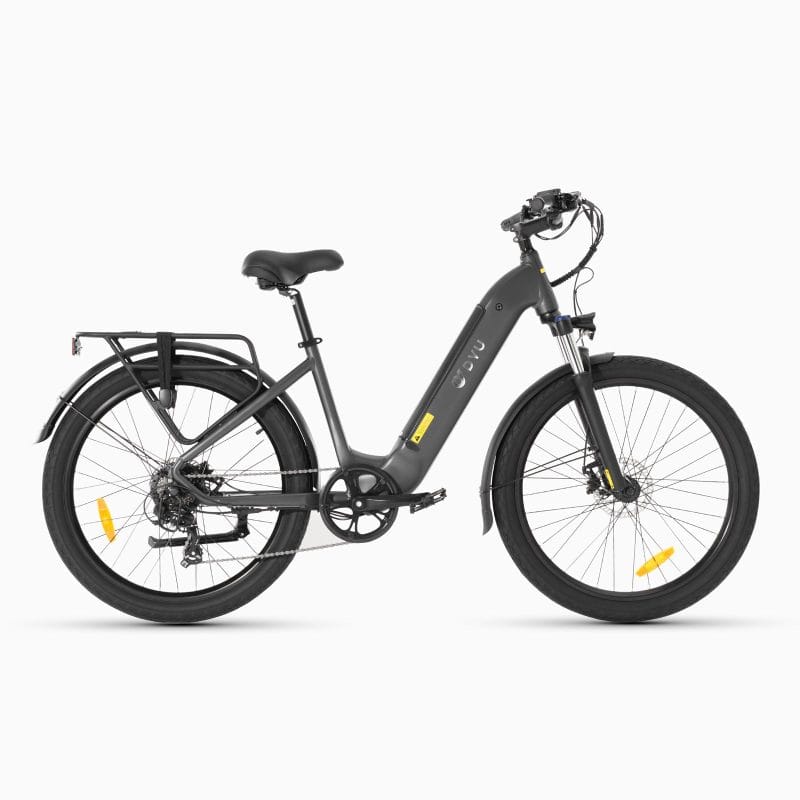
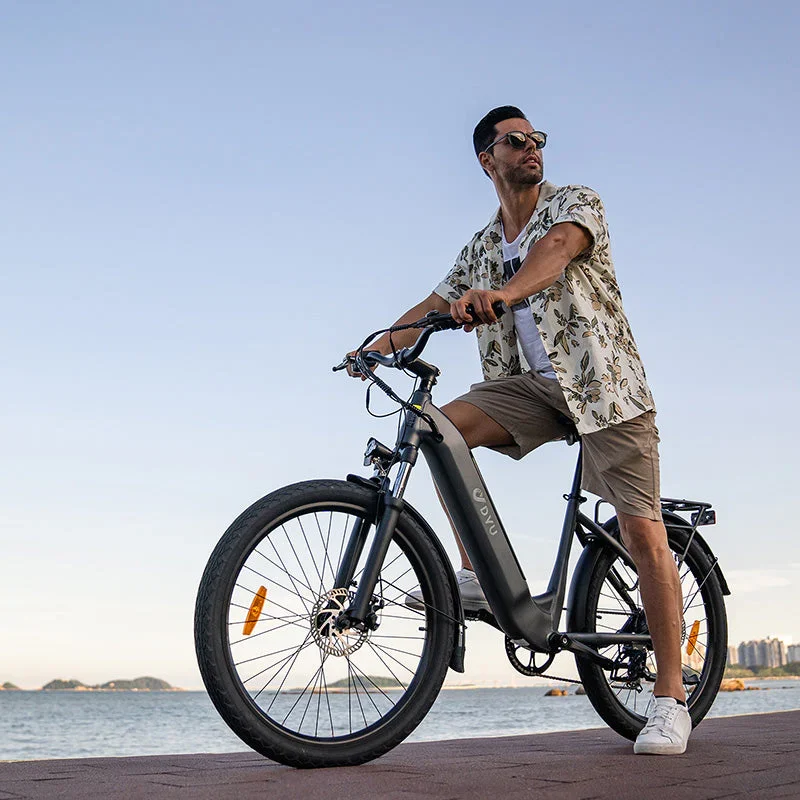
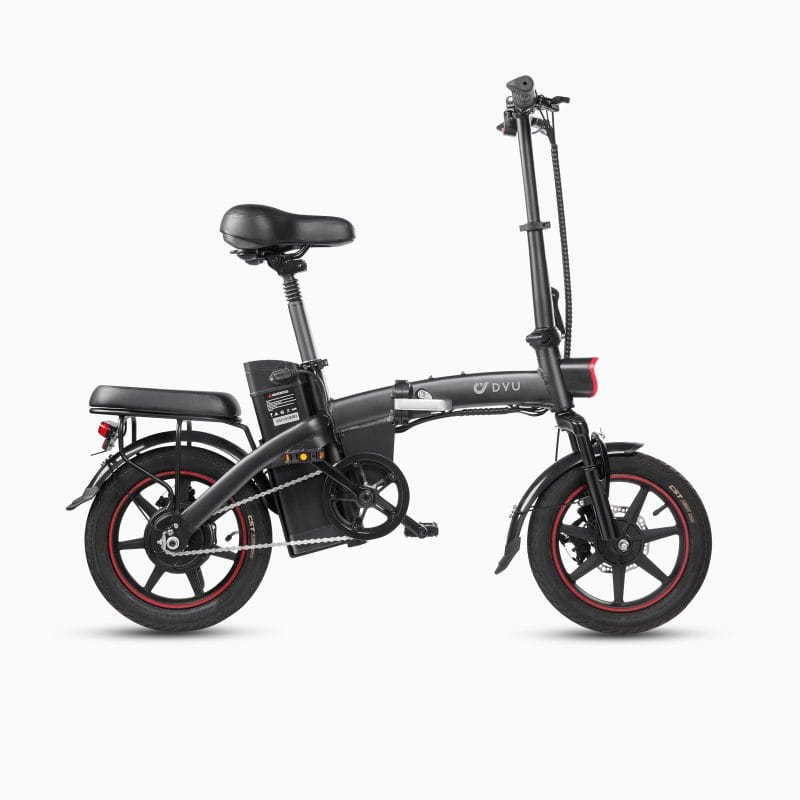
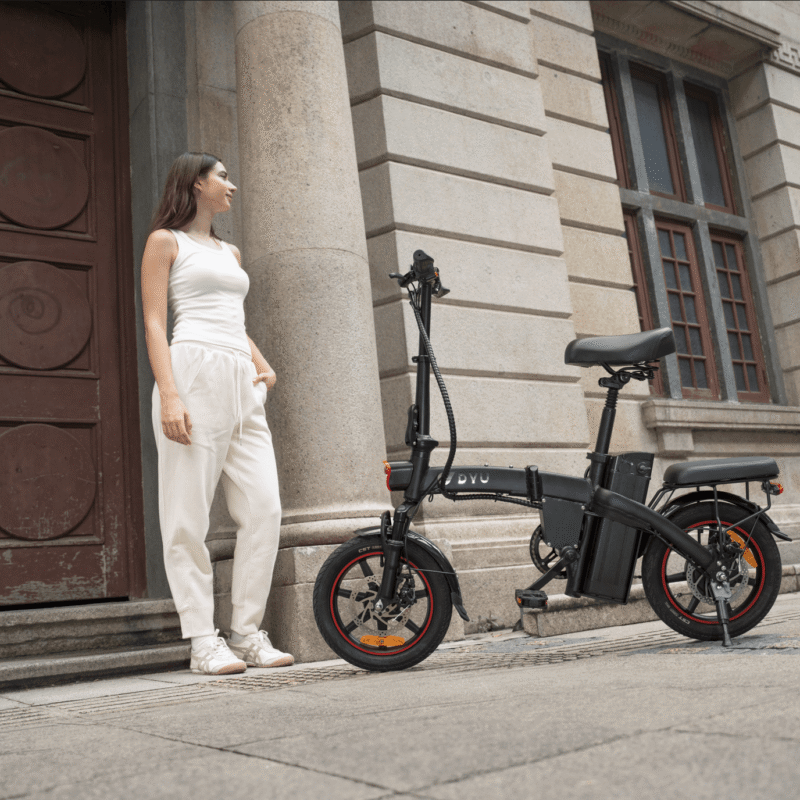
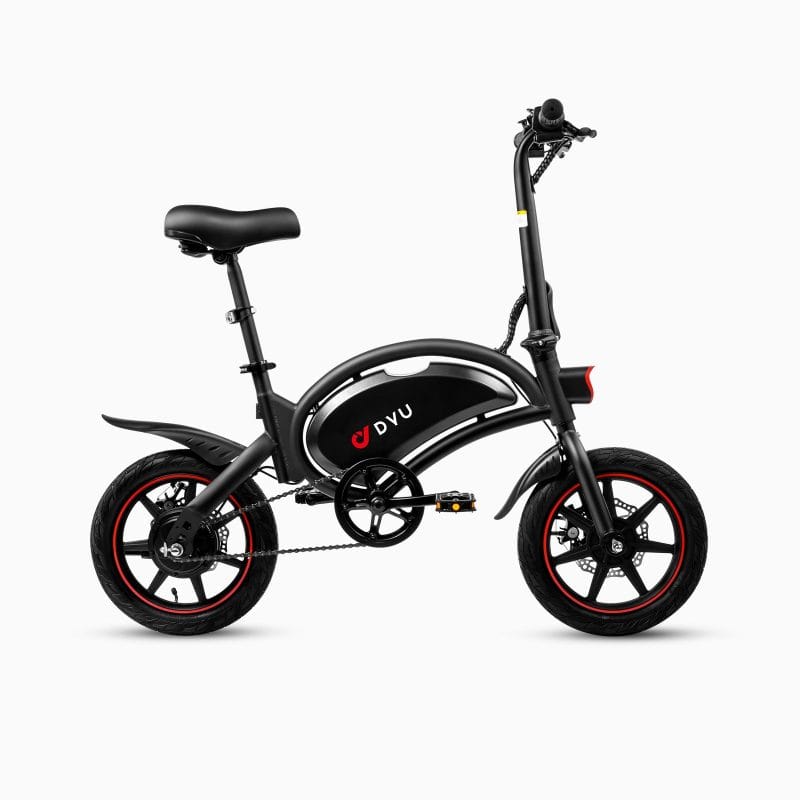

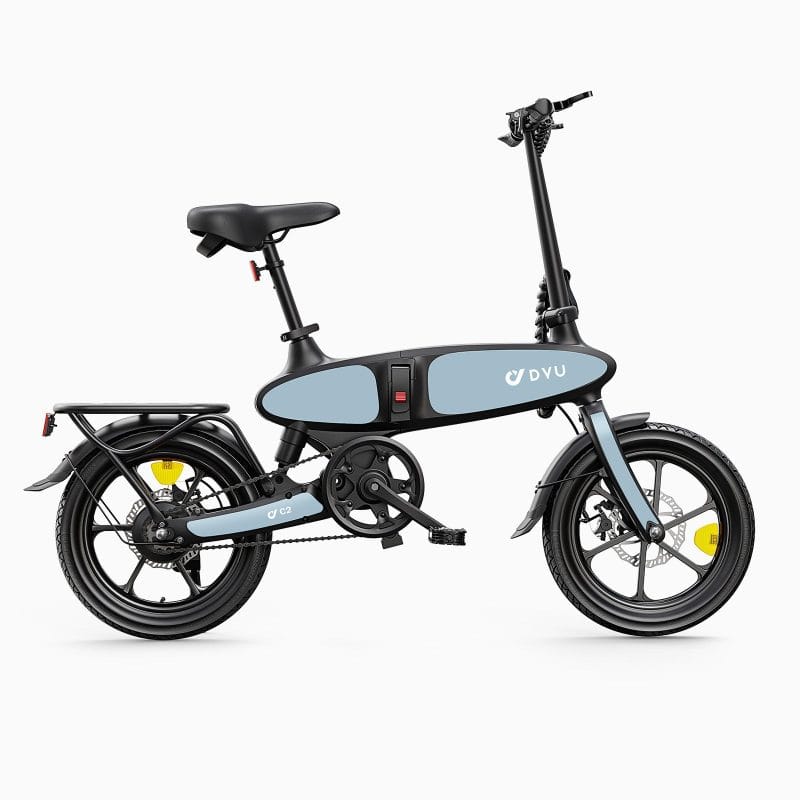
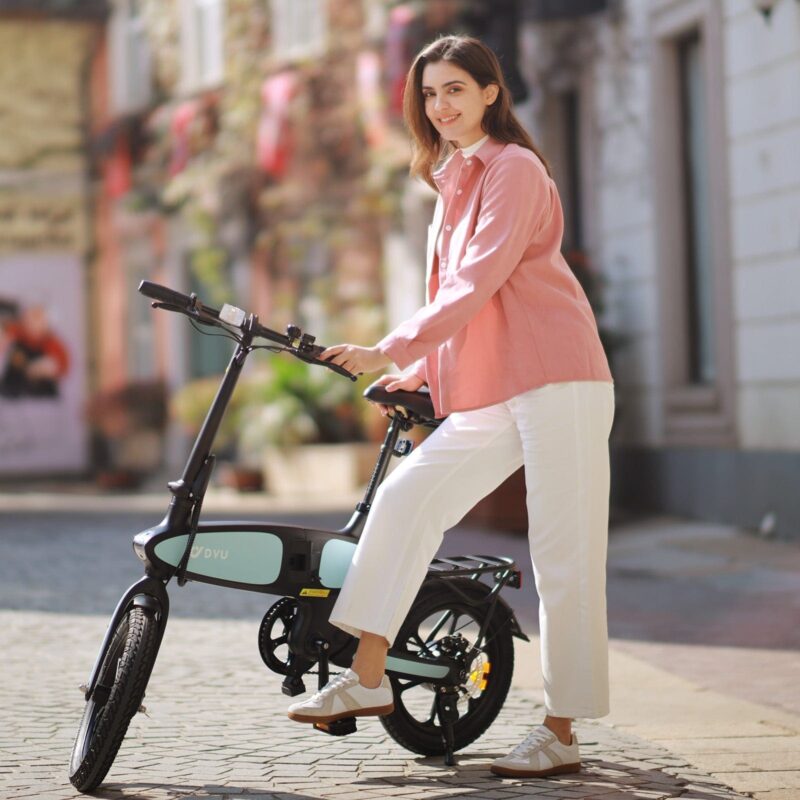
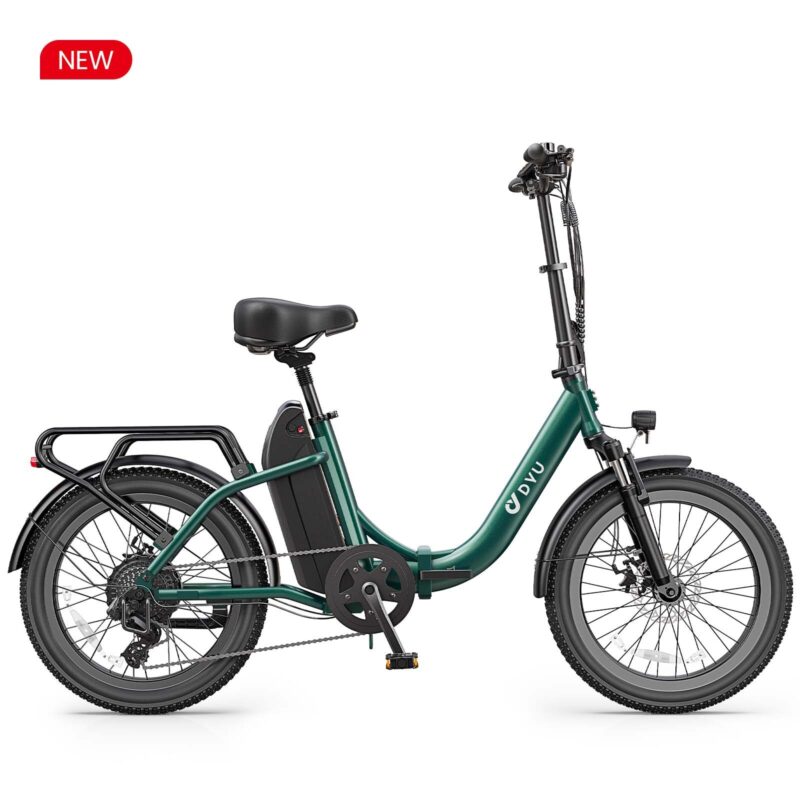
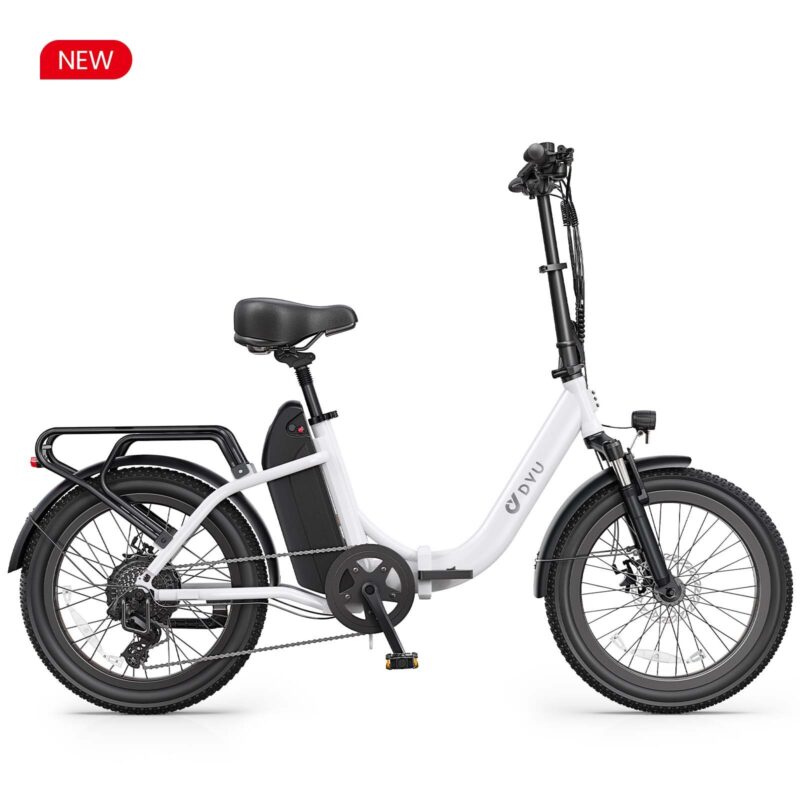
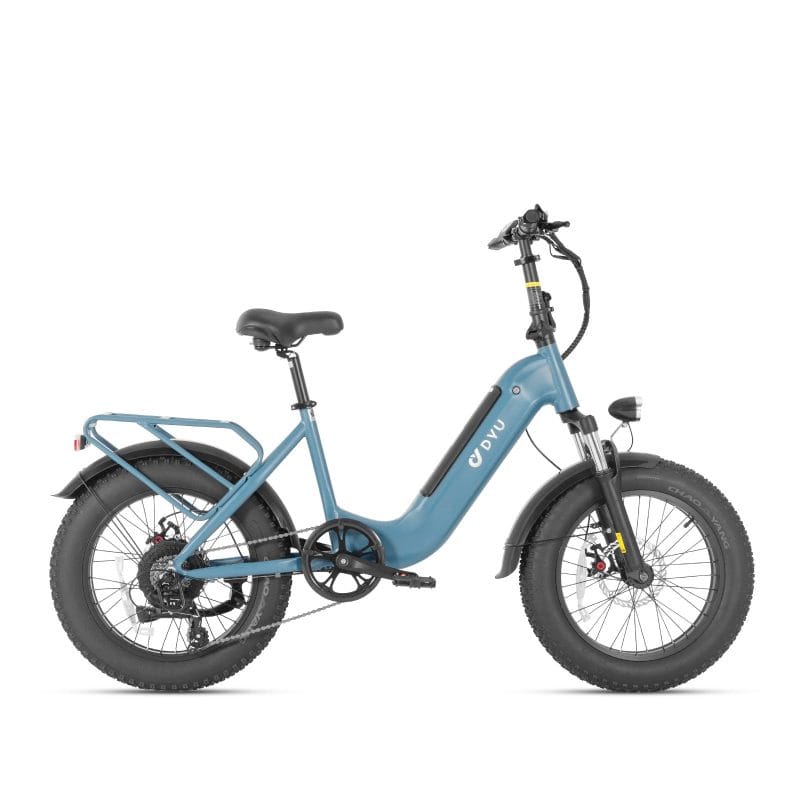
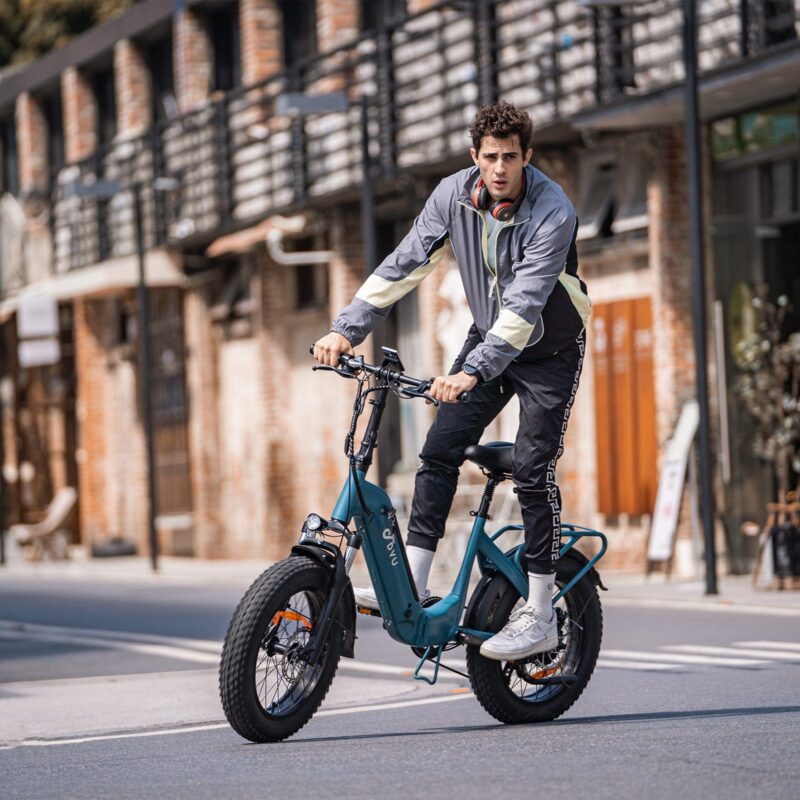
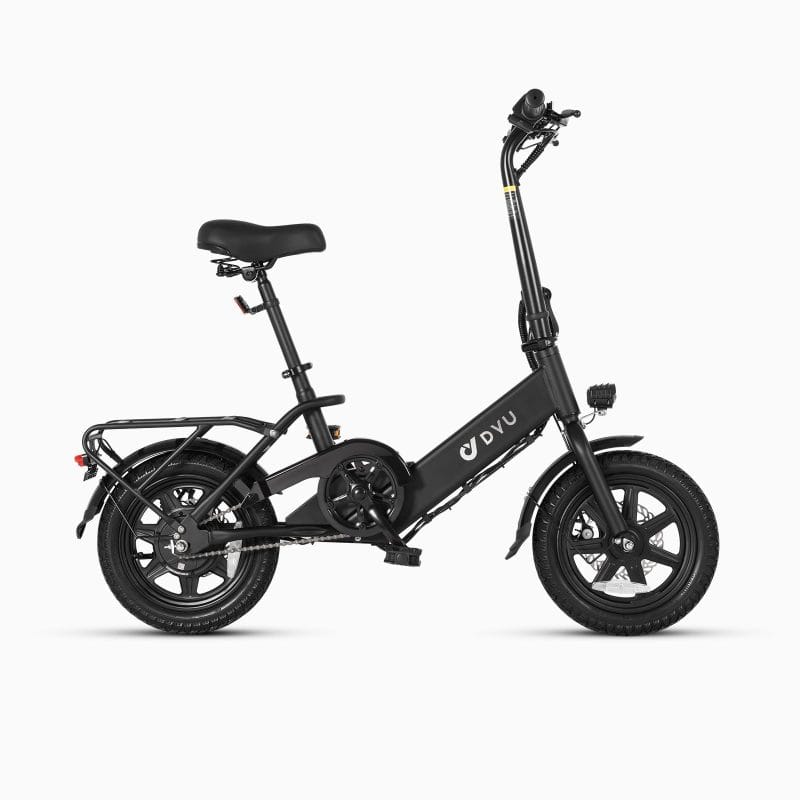

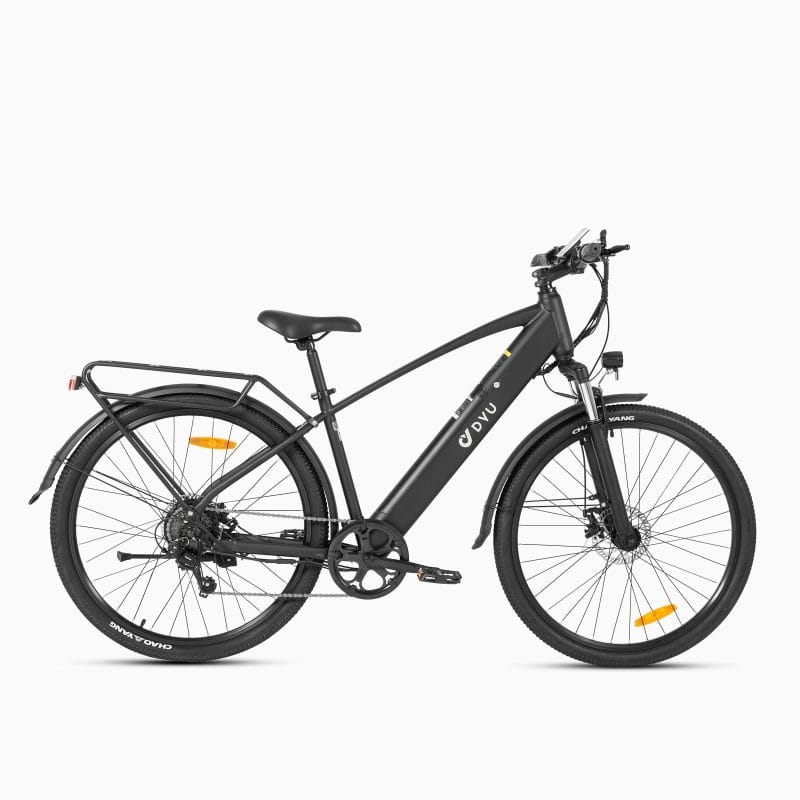

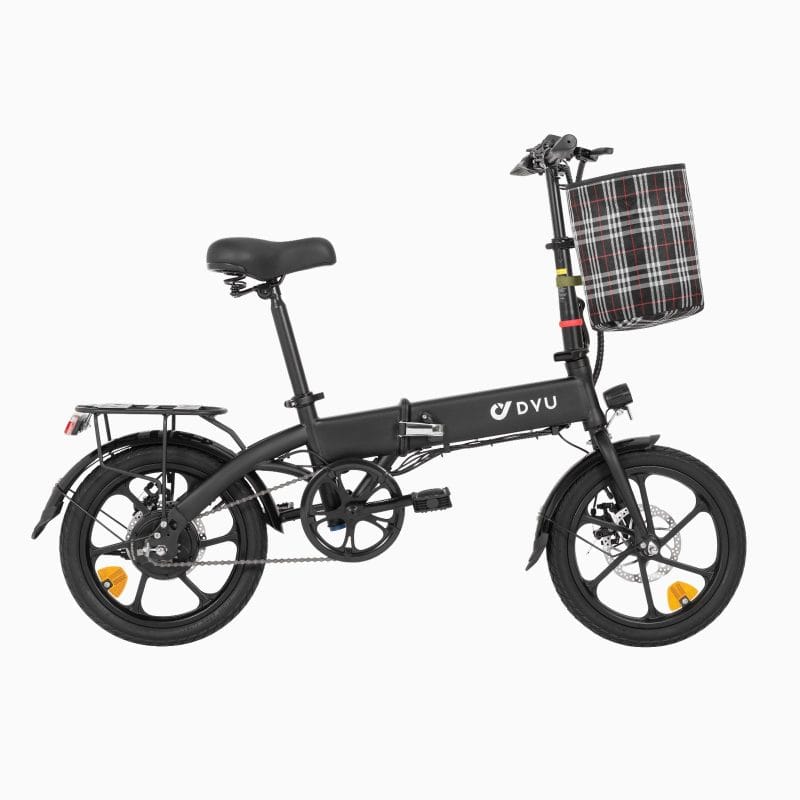
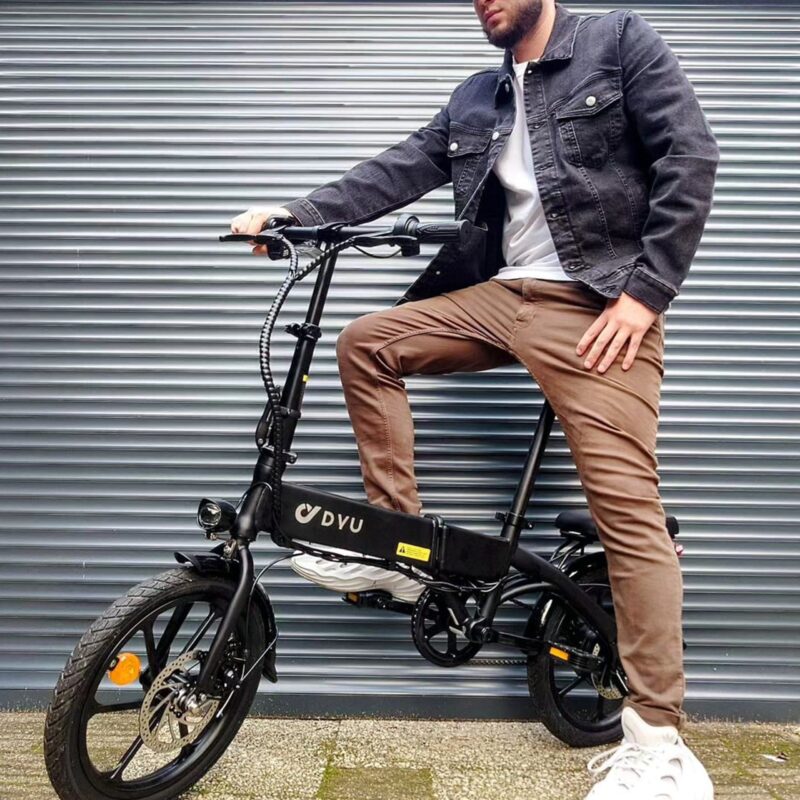
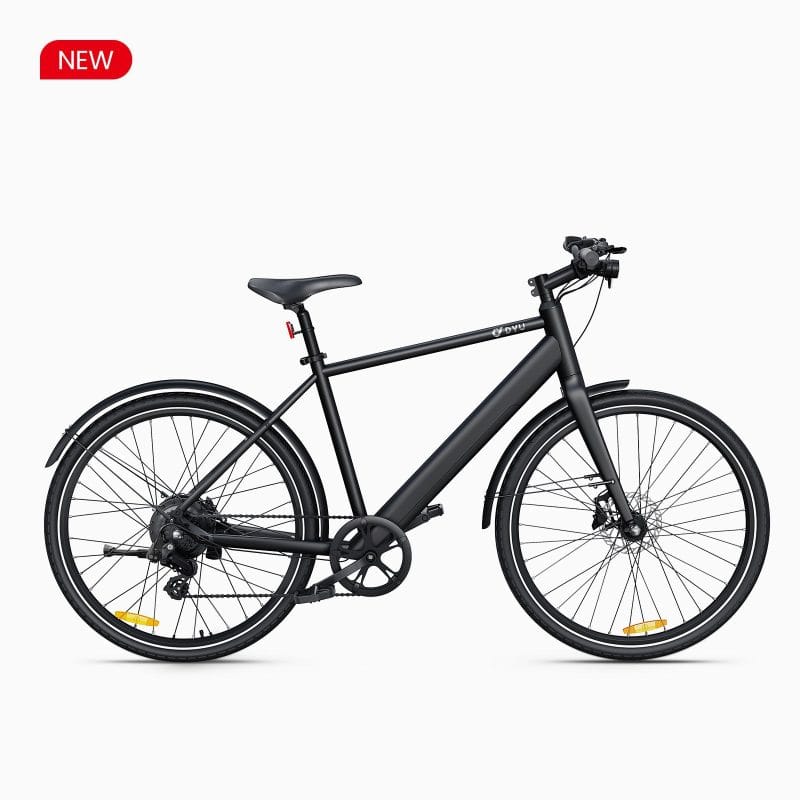
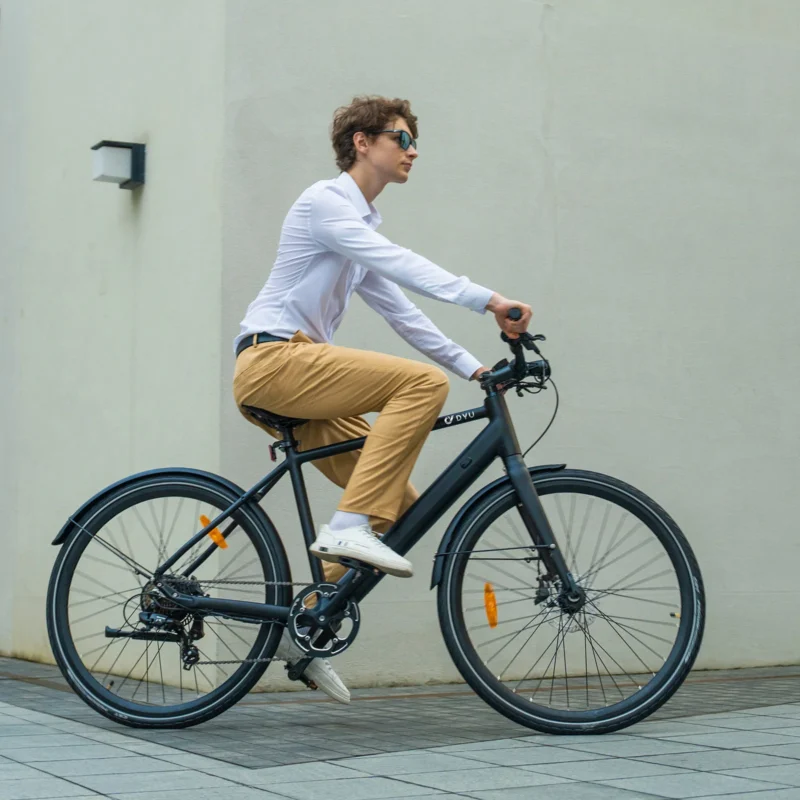
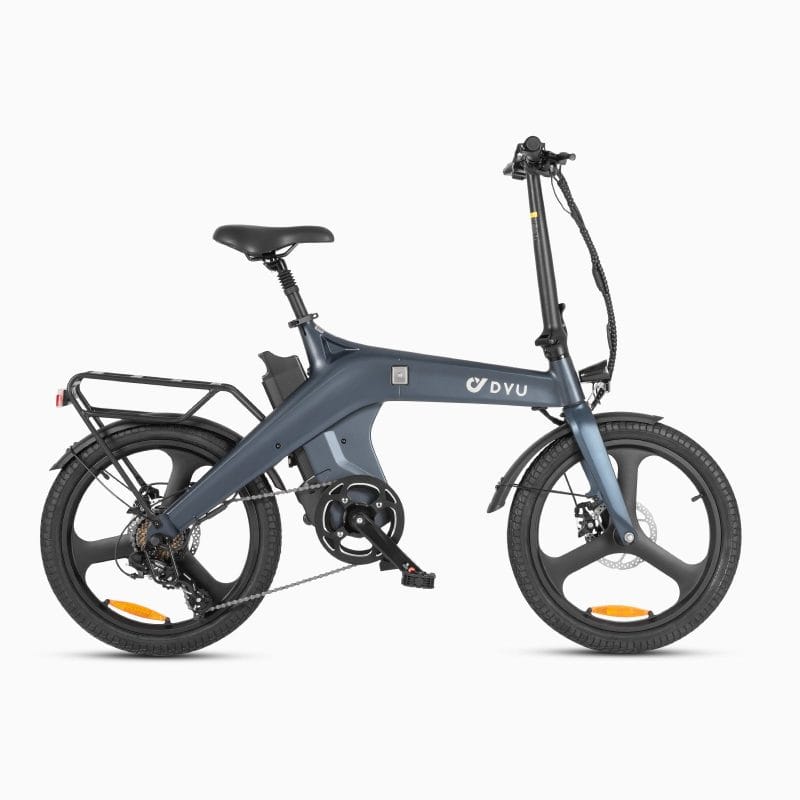
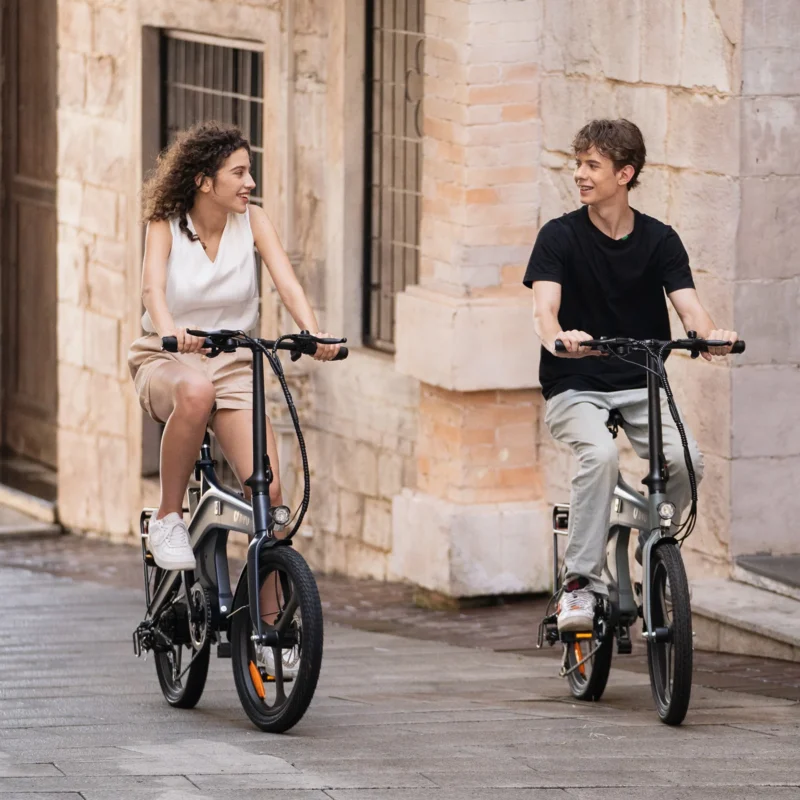
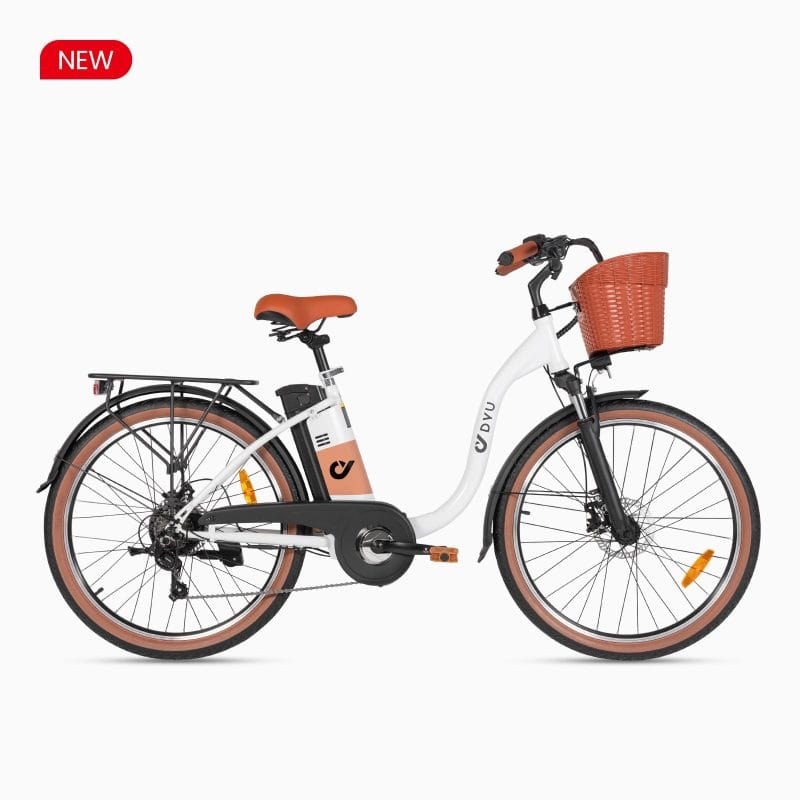
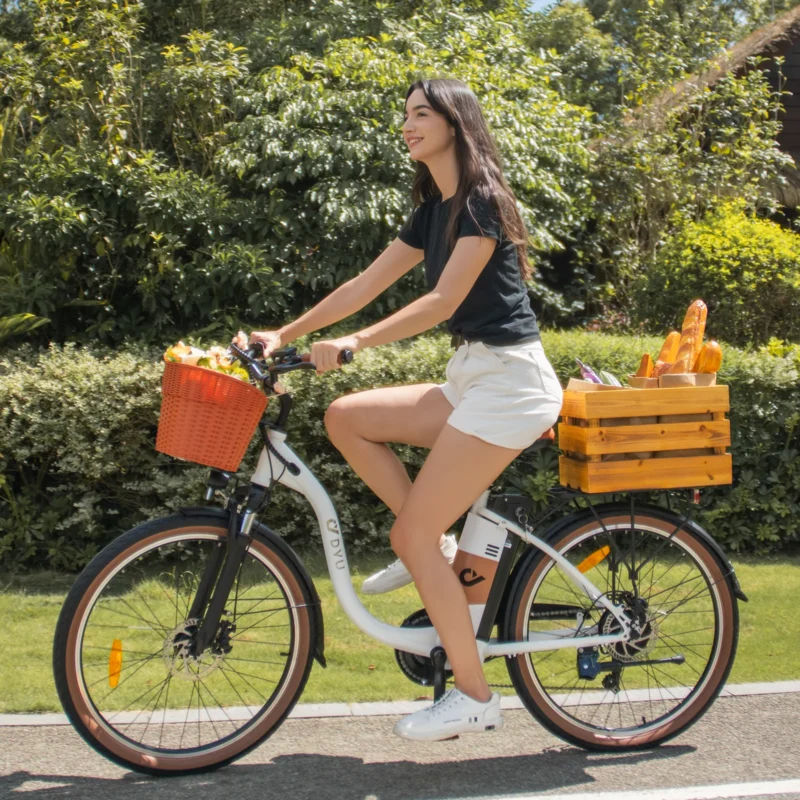





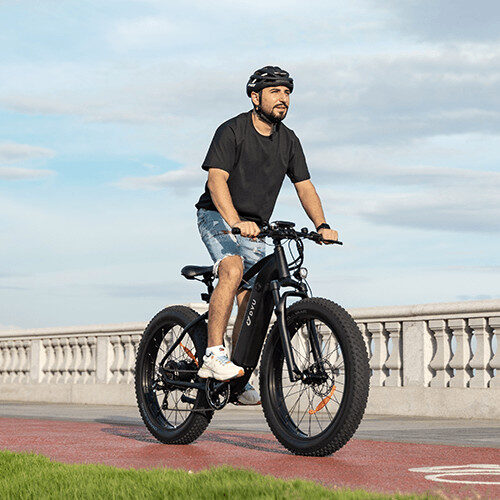
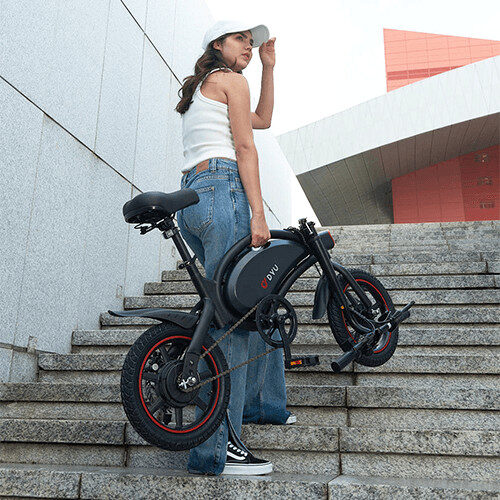
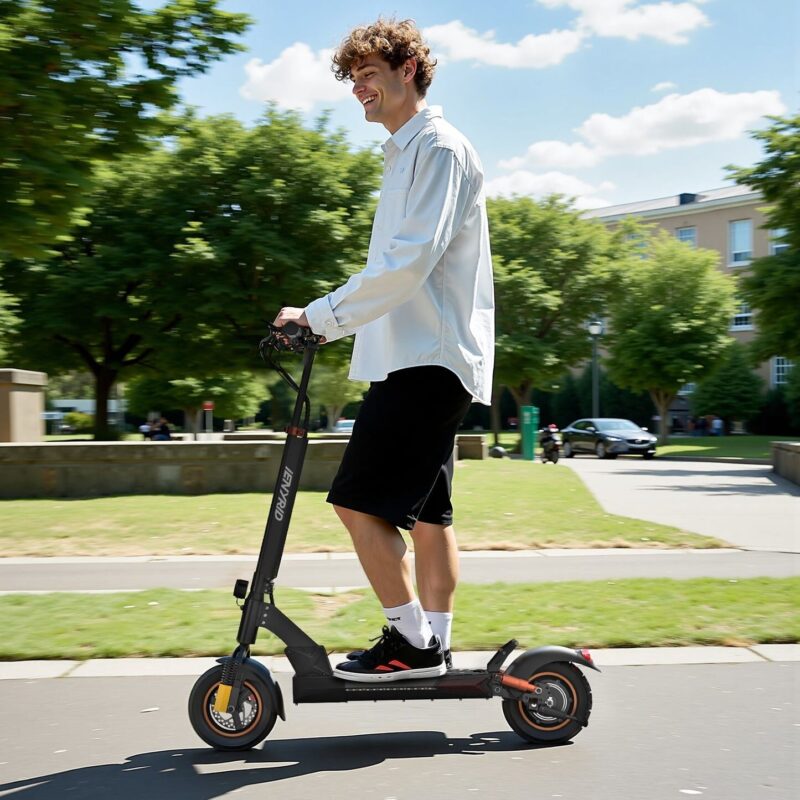




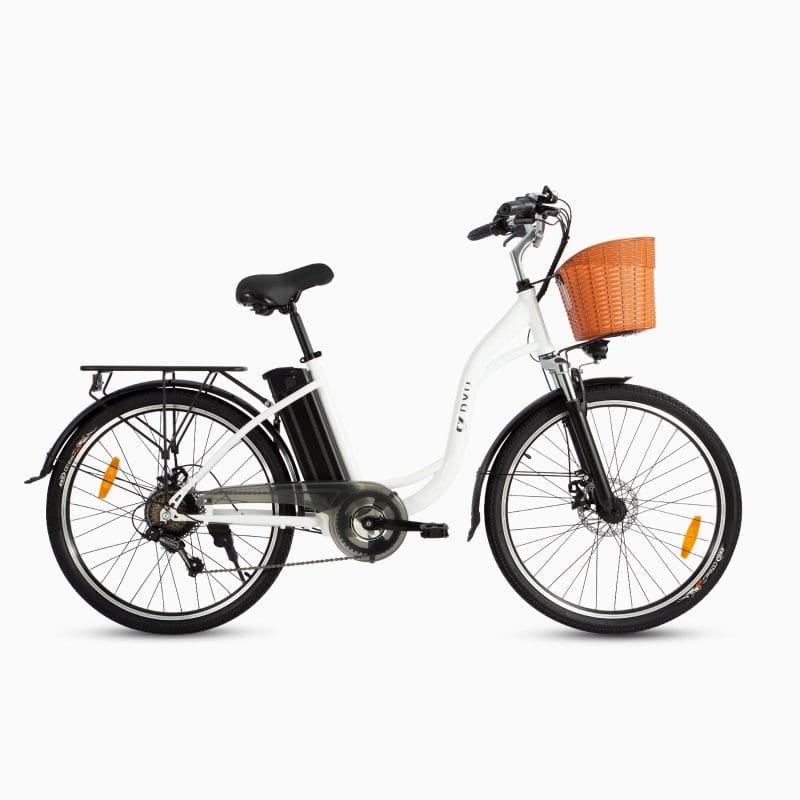
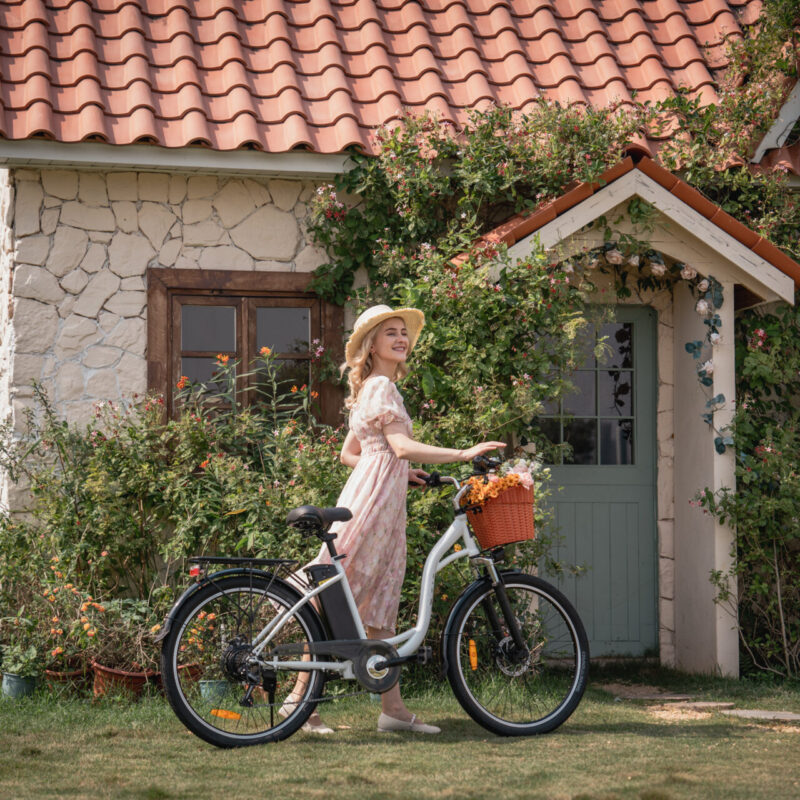



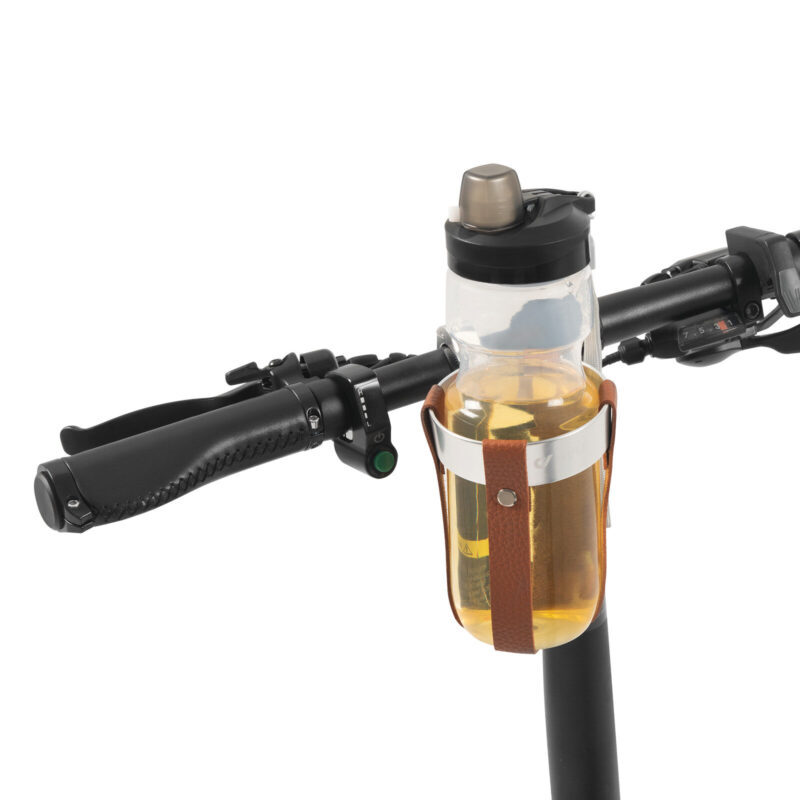



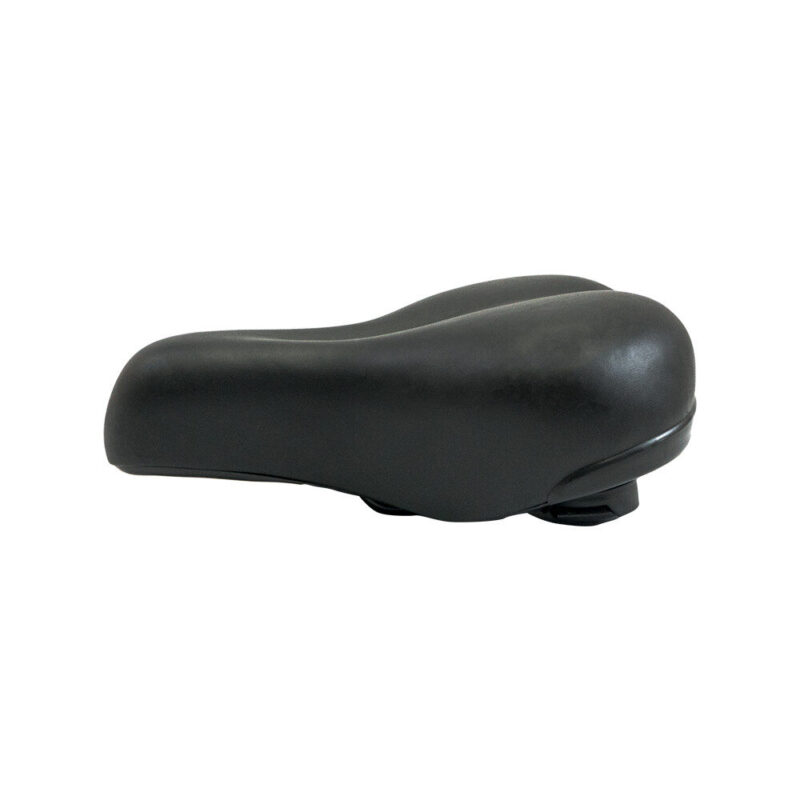
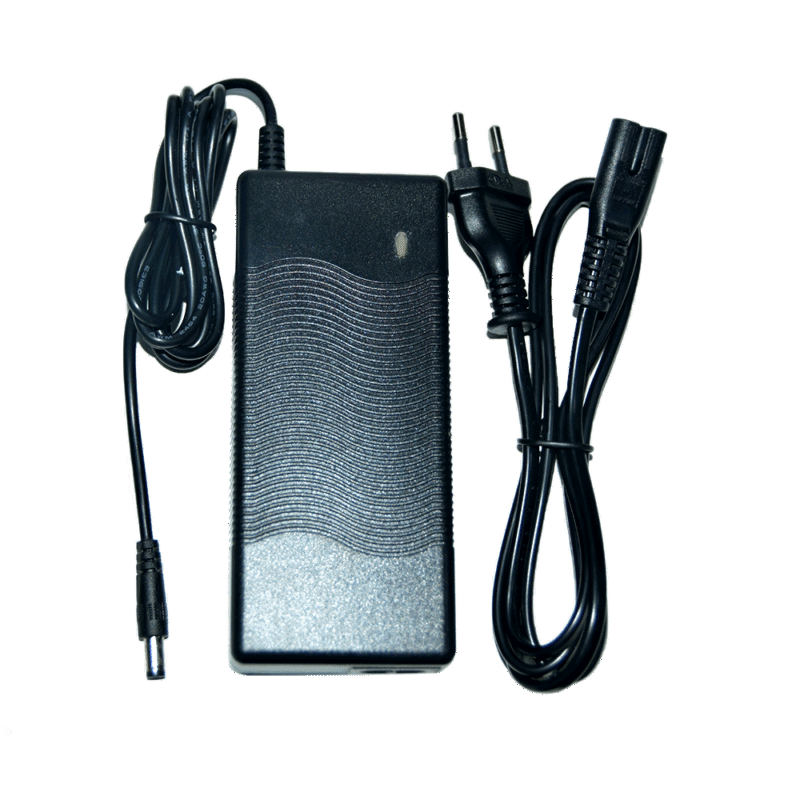


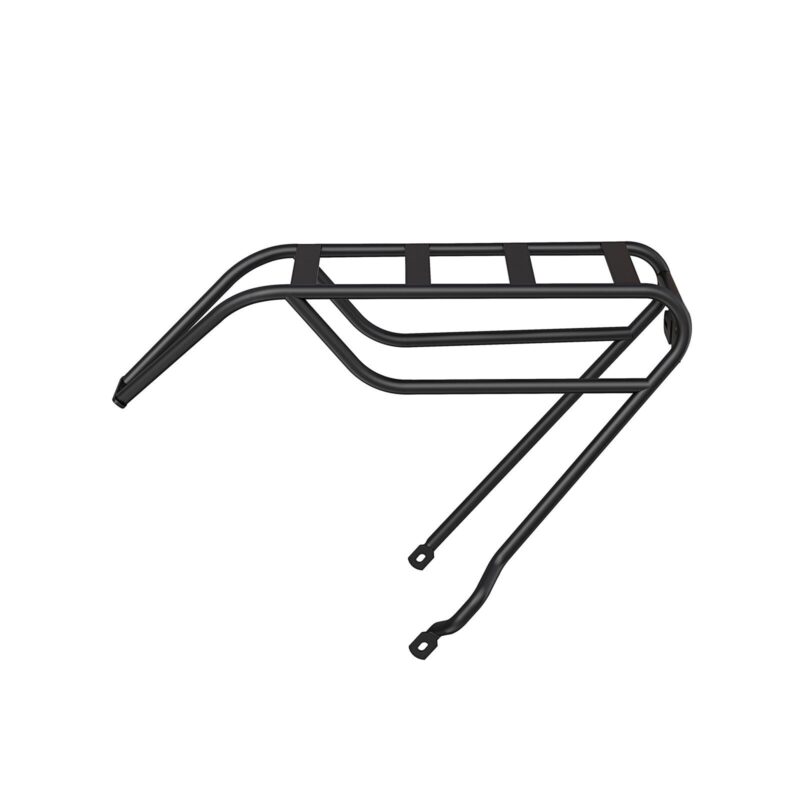
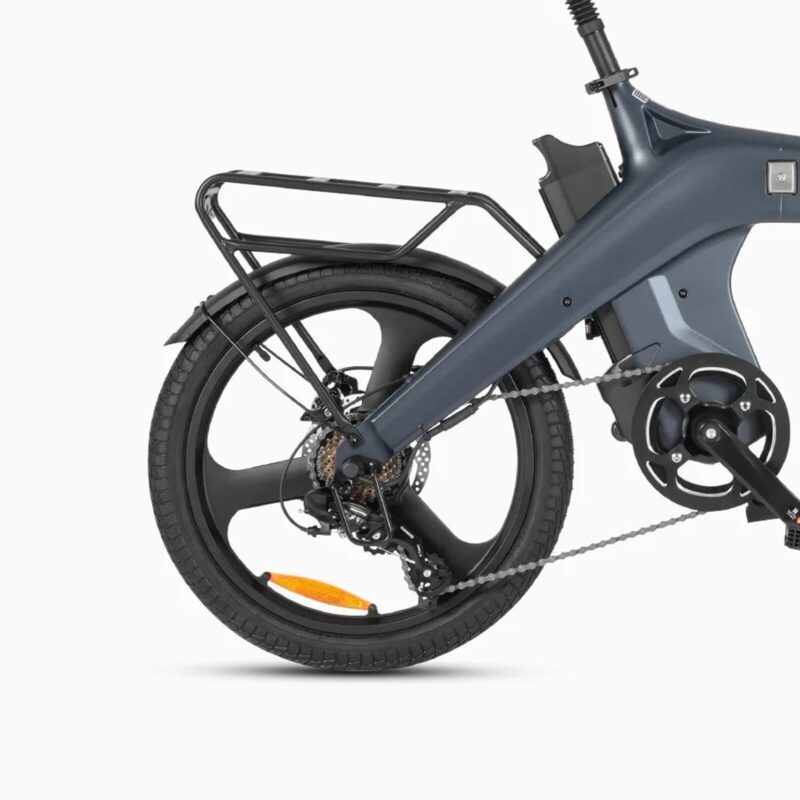
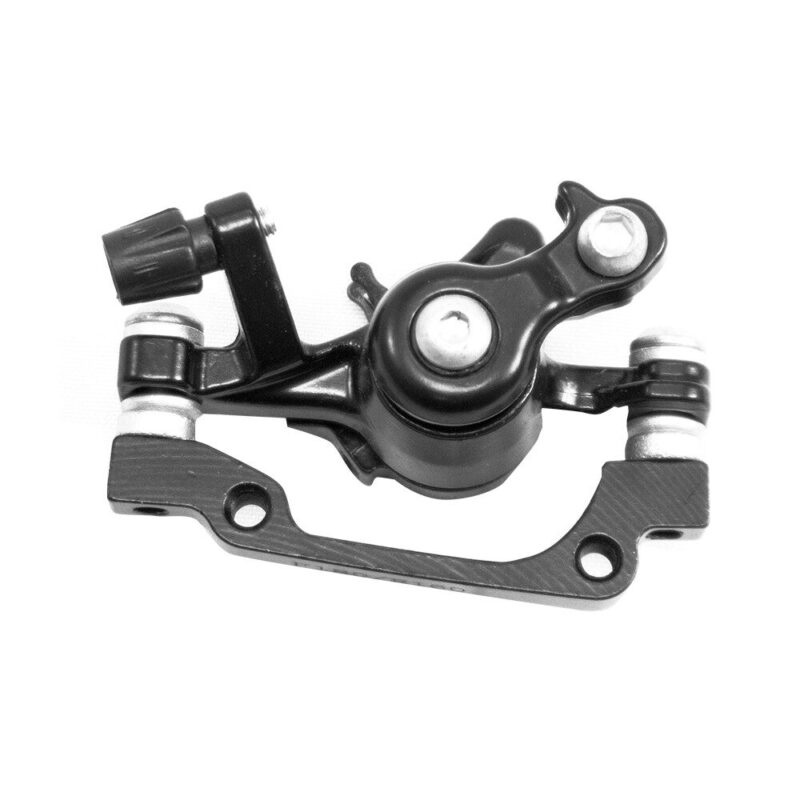
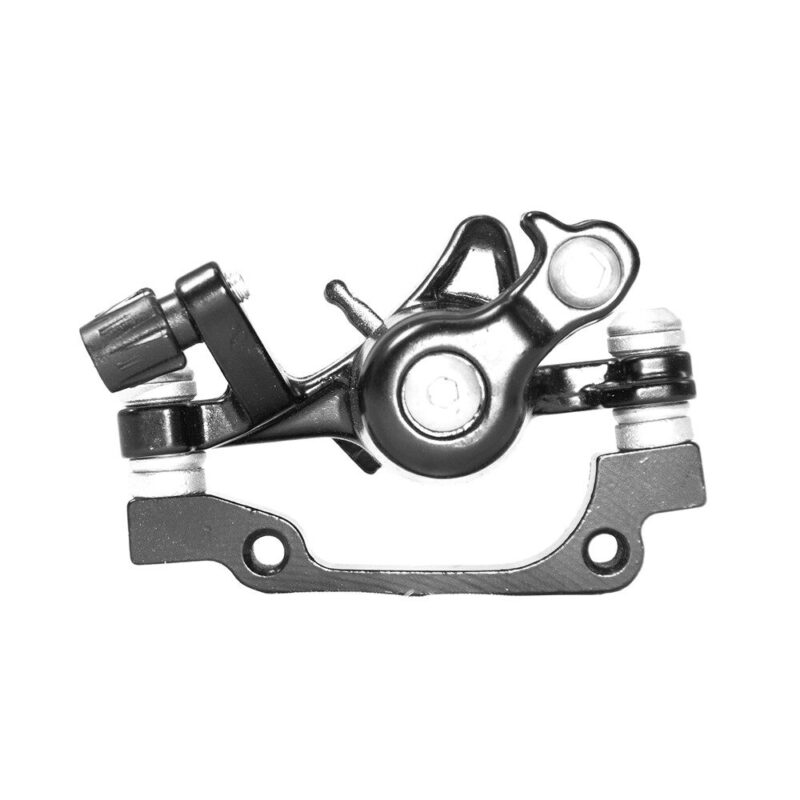

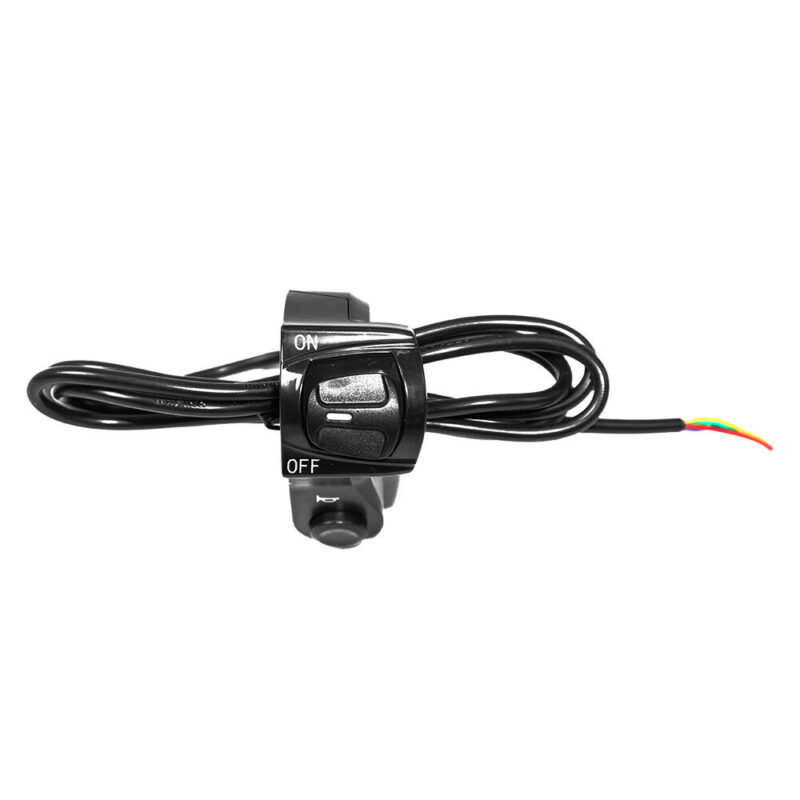
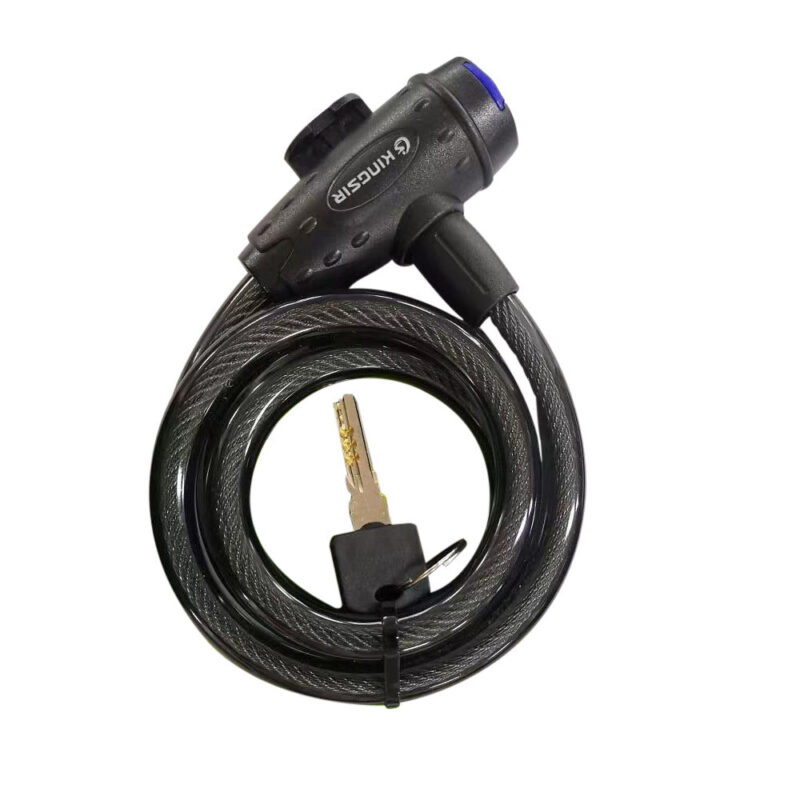
Great breakdown! As a daily commuter, my e-bike has cut my carbon footprint massively—plus, no more bus delays!
The cost comparison sold me: £1.20 vs £27 a week? E-bikes are a no-brainer for my wallet and the planet.
Tried the “bus week vs e-bike week” experiment myself. E-bike’s freedom and saved time are unbeatable, even with the occasional rain soak!